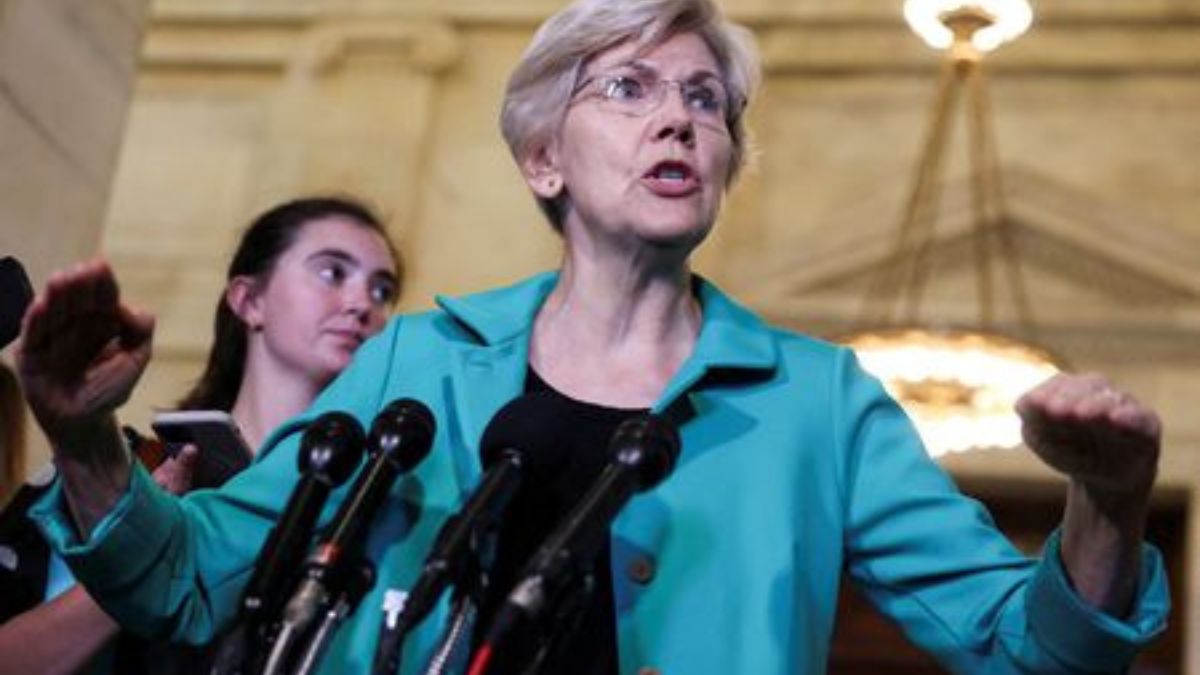News
Imran Khan: A Journey from Cricketing Legend to Political Leader

A unique character who made the leap from the cricket pitch to the halls of power, Imran Khan’s name is synonymous with cricketing greatness and political leadership. His story of grit, love, and metamorphosis has inspired many people and won him fans across the world.
The Cricketing Icon: Rise to Stardom
Imran Khan was born to a wealthy family on October 5, 1952, in Lahore, Pakistan. His academic credentials are top-notch, as evidenced by his attendance at both Aitchison College and the University of Oxford. While living in England, Khan’s cricketing skills really blossomed. His extraordinary abilities as an all-rounder in cricket led to his rapid ascent, first to the Oxford University Cricket Club and then to the Pakistan national squad.
Imran Khan’s cricketing career reached its pinnacle in 1992 when he led the Pakistani team to its first-ever Cricket World Cup victory. As the captain, his leadership on and off the field was instrumental in guiding the team to this historic achievement. His charismatic personality, strategic thinking, and dedication made him not only a cricketing icon but also a symbol of national pride.
Beyond Cricket: Political Aspirations
Imran Khan left the sport of cricket to enter politics. His move from athletics to politics was not impulsive but rather motivated by a sincere desire to serve his country. To combat the economic and political corruption plaguing Pakistan, he established the political party Pakistan Tehreek-e-Insaf (PTI) in 1996.
Khan faced many obstacles in his early political career. Similar to captaining a winning cricket team, navigating the complicated and sometimes volatile political terrain of Pakistan was no easy feat. Khan continued despite encountering resistance, keeping his eye on the prize of a rich and just Pakistan.
The Long Road to Leadership: Perseverance and Challenges
Khan faced several challenges in his path to political power. He was an opponent of the administration for many years, using his voice to denounce what he saw as corruption and incompetence on the part of the ruling party. His followers gave him the nickname “Tiger” as a tribute to his tenacity and will.
Khan’s PTI gained support during the course of the 2000s, particularly among the country’s young people and the urban middle class who identified with the party’s anti-corruption stance and hopes for reform. The PTI’s rise to prominence as the country’s second-largest party in terms of popular vote in the run-up to the 2013 general elections was a watershed moment.
A New Chapter: Prime Minister Imran Khan
By winning the most seats in Pakistan’s National Assembly in 2018, Imran Khan was able to fulfill his lifelong ambition of becoming the country’s leader. When he took the oath of office on August 17, 2018, he became Pakistan’s 22nd prime minister. This was the pinnacle of Khan’s tireless campaign to rid Pakistan of corruption and bring about economic growth.
Khan inherited a failing economy, energy problems, and a pressing need for institutional changes when he became prime minister. His leadership style, which was praised and criticized alike, was frequently regarded as charismatic.
Policy Initiatives and Global Diplomacy
By winning the most seats in Pakistan’s National Assembly in 2018, Imran Khan was able to fulfill his lifelong ambition of becoming the country’s leader. When he took the oath of office on August 17, 2018, he became Pakistan’s 22nd prime minister. This was the pinnacle of Khan’s tireless campaign to rid Pakistan of corruption and bring about economic growth.
Khan inherited a failing economy, energy problems, and a pressing need for institutional changes when he became prime minister. His leadership style, which was praised and criticized alike, was frequently regarded as charismatic.
Conclusion
It is hard to overstate the astonishing nature of Imran Khan’s rise from cricketing greatness to political power. His entire narrative is a demonstration of his dogged persistence, whether on the cricket field or in the halls of power. His legacy will be defined by his fight against corruption, his assistance to the poor, and Pakistan’s rise to international prominence.
News
SRN News Top of the Hour: Navigating the News Landscape with Precision and Style

In today’s world of nonstop news and information, it’s more important than ever to keep up. With updates at the top of the hour, SRN News is an excellent resource for current events. Let’s take a look at how the pros at SRN convey the news and maintain their listeners’ interest.
The Significance of Timely News
Timely news is more than simply information in today’s fast-paced world; it’s a tool for making informed choices. Keeping abreast with current events keeps people in touch with what’s going on in the world and helps them make better decisions.
SRN News Format
SRN takes a novel approach by providing updates on the hour, keeping its audience informed all day long. The format features reports on a wide variety of news topics, from politics to pop culture.
The Art of Storytelling
SRN’s ability to deliver engaging stories is one of its main selling points. Each report is written like a gripping story to attract readers and make the content more approachable.
Perplexity in News Reporting
Reporting the news requires a delicate balancing act between detail and clarity. SRN does this by providing seemingly incomprehensible information in a way that is both captivating and informative.
Burstiness in News Delivery
SRN’s rapid updates are evidence of the rapid pace at which news is being disseminated nowadays. The public is kept updated despite the platform’s emphasis on speed, as high-quality content is consistently sent.
The Human Touch in Reporting
SRN uses tales and personal experiences to humanise the news and create a stronger bond between the network and its viewers. This human element differentiates SRN from impersonal news sources.
Navigating Information Overload
SRN’s audience benefits from the constant stream of information since the network provides updates that are both brief and thorough. SRN helps individuals make sense of the overwhelming amount of data by guiding them through the noise.
Utilizing Analogies and Metaphors
By drawing on parallels and metaphors, SRN makes the news more accessible. This method improves comprehension and makes even complicated stories more approachable.
The Role of Rhetorical Questions
SRN frequently asks rhetorical questions to stimulate viewers’ analytical thinking. This not only increases engagement, but also makes people reflect more thoroughly on the news they take in.
SEO Optimization in News Writing
Optimisation for search engines is essential for online exposure in the modern day. By include appropriate keywords, SRN makes its information searchable and hence more accessible to internet readers.
Crafting Unique Headlines
SRN’s attention-grabbing headlines are guaranteed to stand out. Balancing the necessity for SEO optimisation with reader appeal, the platform ensures its headlines are both attractive and useful.
The Active Voice in News Writing
Using the active voice improves the readability and directness of news articles. SRN uses this method to keep its audience on the edge of their seats and well informed.
Conclusion
SRN News provides its audience with news in a fresh and compelling way with its hourly updates. SRN differentiates itself in the crowded news market by focusing on narrative, complexity, brevity, and humanity.
FAQ’s
- How does SRN ensure the accuracy of its news updates?
To guarantee the reliability of its news reports, SRN employs a multi-step fact-checking procedure.
- What sets SRN’s storytelling apart from other news sources?
Storytelling on SRN is characterised by a human touch, with reporters and anchors using tales and personal experiences to make the news more accessible and interesting.
- How does SRN balance complexity and simplicity in its news reporting?
Without losing context or clarity, SRN manages to communicate complex material in a way that captivates its audience.
- Why is the active voice important in news writing?
News reports are more effective and interesting when written in the active voice, which increases clarity and urgency.
News
Raven Richard Channel 9 News: A Journey of Influence and Dedication

In the field of journalism, the name Raven Richard is synonymous with reliability, honesty, and commitment. She has risen to prominence on Channel 9 News thanks to her command of the English language, knack for reporting, and natural flair for delivering the news. The journalist Raven Richard has made an everlasting effect on the media world, and this essay will examine her life and work.
Early Life and Education
The journalistic career of Raven Richard has solid beginnings. She had a rural upbringing that fostered her love of literature and storytelling. After finishing her high school education, she sought a degree in journalism from a prestigious institution, where she refined her writing and reporting talents.
Raven Richard’s Journey to Channel 9 News
After finishing college, Raven Richard began a fantastic career in journalism. Beginning as an intern, she gained experience in all aspects of journalism from reporting to newscasting. Her hard work and commitment were recognised, and she was offered a position at Channel 9 News.
Accomplishments and Achievements
Raven Richard has accomplished much throughout his time at Channel 9 News. She has been recognised for her excellent coverage of pressing problems and breaking news. People love her because she can relate to them and they can trust the facts she gives them.
Raven Richard’s Reporting Style
Raven Richard’s engaging and polished English is one of the things that sets her reporting apart. Her reporting has a conversational tone that makes difficult subjects easier to understand. This style keeps viewers engaged and appeals to a wide variety of people who can now follow the news.
Impact on the Community
Raven Richard goes beyond her reporting duties by actively connecting with the community. She actively takes part in community outreach activities because she is convinced of the transformative potential of journalism. Her commitment to making a change is inspiring.
Challenges Faced in the Field
Raven Richard, like any other successful person, has had to overcome obstacles in her pursuit of journalism. Her will to succeed in her field has only grown as a result of these setbacks. She has surmounted challenges and adjusted to the ever-changing world of news reporting.
Covering Memorable News Stories
Throughout her career, Raven Richard has reported on a wide variety of groundbreaking news items. She has been in the vanguard of reporting on everything from natural catastrophes to political events, keeping the public informed at all times.
Raven Richard’s Work Ethic and Dedication
Raven Richard’s hard work and determination have helped her become where she is now. To assure the credibility of her reporting, she goes above and beyond. Her audience have come to trust her since she always tells it like it is.
Community Engagement and Outreach
The value of having strong ties to one’s neighbourhood is something that Raven Richard fully appreciates. She is well-liked in the area since she frequently takes part in activities and programmes that help to strengthen these bonds.
The Future of Raven Richard at Channel 9 News
Channel 9 News has a bright future with Raven Richard as she continues to advance in her profession. She will almost certainly be given additional responsibility in the newsroom in the near future, further establishing her as a leader among journalists.
A Day in the Life of Raven Richard
Have you ever been curious about a day in the life of Raven Richard? Her days are jam-packed with commitments such as meetings, interviews, and study. She is very good at scheduling her time so that she can provide excellent news coverage.
Raven Richard’s Hobbies and Interests
Raven Richard, in addition to her busy professional life, enjoys a wide variety of activities in her spare time. She maintains equilibrium through a variety of activities, including reading, travelling, drawing, and volunteering.
The Viewer’s Perspective
Audiences see more than simply a newsreader in Raven Richard. She provides them with up-to-date information and is always a pleasant presence. Her audience finds common ground with her work, making her an indispensable part of their life.
Conclusion:
Raven Richard’s rise to fame at Channel 9 News is a reflection of her perseverance, diligence, and superior journalistic abilities. She has risen to prominence in the media industry and made an indelible mark on her hometown.Keep up with Channel 9 News to learn about the newest developments and hear from Raven Richard. Raven Richard has always been an inspiration to her fellow journalists because to her polished news delivery and ability to hold the attention of her viewers with insightful analysis.
FAQ’s
1. How did Raven Richard start her career in journalism?
Raven Richard began her journalism career as an intern at a local news channel, eventually gaining a position at Channel 9 News.
2. What sets Raven Richard’s reporting style apart?
Raven Richard’s reporting has a natural, conversational tone that makes even difficult subjects easier to understand.
3. What are some of Raven Richard’s notable achievements in journalism?
Raven Richard’s outstanding coverage of vital problems and breaking news items has earned her several accolades.
4. How does Raven Richard engage with the community?
Raven Richard shows her dedication to make a difference in the world by taking part in a variety of outreach programmes and activities.
5. What can viewers expect from Raven Richard in the future?
There’s hope for Raven Richard at Channel 9 News, where she might rise to even greater prominence in the future.
News
Elon Musk’s Tesla Full Self-Driving (FSD): Revolutionizing the Automotive Industry

With his ground-breaking electric automobiles, Elon Musk. The brilliant businessman and CEO of Tesla Inc., has been at the vanguard of revolutionising the automotive sector. Full Self-Driving (FSD) technology is one of the most important innovations that Tesla has introduced. This essay examines Elon Musk’s Tesla FSD’s amazing potential, present situation, and prospective effects on transportation in the future.
What is Tesla Full Self-Driving (FSD)?
Tesla’s Full Self-Driving (FSD) technology for autonomous driving intends to make it possible for cars to run without the need for driver input. To traverse highways, make difficult judgements. And react to varied driving circumstances, FSD combines cutting-edge technology, such as cameras, radar, ultrasonic sensors, and powerful onboard processors, with artificial intelligence algorithms.
Current Status of Tesla FSD
With a small group of early access consumers as of 2023, Tesla’s Full Self-Driving technology is still in the beta testing stage. Through over-the-air updates, accumulating useful driving data from real-world situations . And optimising the algorithms, the business has been enhancing the software regularly. FSD delivers a number of cutting-edge driver-assistance functions, including as Autosteer, Traffic-Aware Cruise Control, and Auto Lane Change, despite the fact that it is not yet fully autonomous.
Benefits and Potential Impact
The Tesla FSD by Elon Musk has the potential to transform the car industry in a number of ways. Here are some significant advantages and possible effects:
1. Enhanced Safety: The goal of FSD is to lessen human error. Which is the main factor in most accidents, using cutting-edge sensors and AI algorithms. It might possibly save countless lives since it can analyse and react to traffic conditions more quickly than a human driver.
2. Improved Traffic Efficiency: FSD technology has the ability to improve overall traffic efficiency. Lessen stop-and-go traffic, and reduce congestion to optimise traffic flow. This may lead to shorter travel times, better fuel economy, and a more environmentally friendly transportation system.
3. Increased Accessibility: For people who are unable to drive owing to disability or age-related restrictions, autonomous cars enabled by FSD may offer mobility options. Additionally, it could improve the mobility alternatives available to those living in rural regions or without access to dependable public transit.
4. Ride-Sharing and Mobility-as-a-Service: Tesla vehicles with FSD capabilities might revolutionise the ride-sharing market. Tesla automobiles with autonomous capabilities might be requested using a smartphone app, offering practical and affordable transportation choices. This may open the door for Mobility-as-a-Service (MaaS) business models, lowering automobile ownership and urban congestion.
Challenges and Future Outlook
Tesla’s Full Self-Driving technology still has many difficulties to overcome despite its enormous promise. The limits of the present hardware and software must be overcome, as well as regulatory obstacles and public acceptance. Furthermore, maintaining the privacy and security of driverless cars is a crucial challenge.
Looking ahead, Tesla will continue to make significant investments in R&D to improve FSD capabilities. As the FSD beta programme grows and more Tesla owners use it, the firm intends to progressively increase the technology’s availability.
Conclusion
Tesla Full Self-Driving technology developed by Elon Musk has the potential to completely change the way we travel by moving us closer to a day when all cars are autonomous. Although FSD is still in the early stages of research. Its potential advantages are astounding, including higher safety, better traffic efficiency, expanded accessibility. And game-changing ride-sharing models. The continual focus on innovation and development by Tesla raises hopes for the advent of completely autonomous vehicles.
-

 Fashion6 months ago
Fashion6 months agoHow To Style Earrings for a Night Out
-

 Real Estate1 year ago
Real Estate1 year agoHow to Unlock the Benefits of Real Estate Investment in Pakistan
-

 Business2 months ago
Business2 months agoWhat Can You Expect from a High-End London Office Space?
-

 Tech11 months ago
Tech11 months agoTMIIS Virtual Gateway: Opening New Horizons in Global Connectivity
-

 Digital Marketing2 months ago
Digital Marketing2 months agoHow to calculate CPM in digital marketing?
-

 Lifestyle1 year ago
Lifestyle1 year agoThe New Trend in Home Furnishings Teapoy and Wooden Sitting Stool
-

 General2 months ago
General2 months agoUnraveling the Mysteries of “λιβαισ”: A Comprehensive Guide
-

 Real Estate1 year ago
Real Estate1 year ago5 Common Mistakes to Avoid When Buying Property in Pawleys Island, SC
